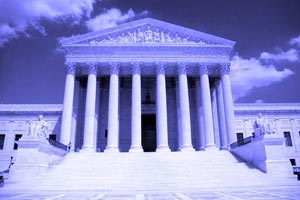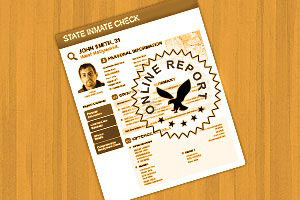Louisiana Public Records
The mission of this website is to provide all Louisiana citizens with the right to obtain, preview, and examine public records. This ensures that these residents are given access to such information, which is in accordance with the Louisiana Public Records Act. This law specifies that all government information and records are presumed accessible to the public.
Louisiana State Records contains information on criminal records, court records, vital records, and over 42 million transparent public records.
Are Louisiana Records Public?
The Louisiana Public Records Law ensures public access to most records generated by government agencies in the state. According to the law, interested requesters can submit official requests to inspect these records or purchase physical copies. Louisiana also requires governmental entities to respond to all requests for records in their custody.
According to the law, public records include information used by an agency, under the Louisiana Constitution or other regulation, to transact or perform public business. Public records may be books, writings, letters, maps, tapes, recordings, memoranda, and other documentary materials regardless of characteristics and physical form. The law’s definition also includes duplicates, copies, or other reproductions of these materials (La. Rev. Stat. Ann. § 44:(2)(a)).
What is Considered Public Information in Louisiana?
Some examples of public records Louisiana agencies create or maintain include the following:
- Public court records
- Public bankruptcy records
- Public inmate records
- Public sex offender records
- Selected vital records like public Louisiana divorce records
- Public property records
- Criminal history records and criminal records
Generally, Louisiana encourages public agencies to interpret the public records law literally. Except otherwise provided by statute, interested requesters should not be denied access to information in the custody of public agencies. Louisiana law also states that, following a public records act request, record custodians must see the provision of public records as an official responsibility (La. Rev. Stat. Ann. § 44:31(A)). To obtain a record, requestors may conduct a public data search using the online resources maintained by government agencies and third-party aggregate sites. To search public records, requestors must provide information required to facilitate the public record search.
How Do I Find Public Records in Louisiana?
The Louisiana Public Records Law requires agencies to allow the inspection or copying of public records in custody. However, each interested person must submit an official request to the agency in charge of the record. Regardless of the agency or the record, interested parties may use the following steps on how to access public records in Louisiana:
- Determine the type of record
Each requester must first decide on the required information. Louisiana has several types of public records created or compiled by different agencies at the state and parish levels. This step also helps the requester to determine the record’s availability for public disclosure. For instance, arrest records are maintained by county Sheriff's offices, vital records like marriage, birth, death and divorce records are maintained by the parish or county clerk's offices or recorders offices.
- Identify the agency in charge
Deciding on the type of record helps the requester to confirm the custodian agency. For instance, court records are obtainable from the clerk at the court that heard the case, while inmate information is available at the sheriff’s office with relevant jurisdiction.
- Create a request
In Louisiana, a request is sufficient if it adequately describes the desired record. Since the Louisiana Public Records Law does not require that requests must be written, agencies may accept oral requests. Nonetheless, these agencies may prefer written requests and sometimes provide a public record request form for easier processing. Generally, requests for Louisiana public records should contain the following:
- The type of record
- Information contained on the record, such as names and dates
- The requester’s full name and contact information
- The requester’s preferred delivery method
- Submit the request
Record seekers must submit requests according to the agency’s instructions. Usually, available options include in-person, fax, mail, phone, and online submissions. However, some agencies may specify submission methods, limiting options to in-person or mail requests. Some options may also be available for free, while others incur varying costs or conditions. For instance, online requests may cost additional processing fees, while mail requests may have further requirements, such as a self-addressed and stamped envelope.
Using Third-Party Sites to Search Public Records in Louisiana
City Records
Public city records may also be accessible from third-party websites. These non-government platforms come with intuitive tools that allow for expansive searches. Record seekers may either opt to use these tools to search for a specific record or multiple records. However, users will need to provide enough information to assist with the search such as:
- The name of the subject involved in the record (subject must be older than 18 or not juvenile)
- The address of the requestor
- A case number or file number (if known)
- The location of the document or person involved
- The last known or current address of the registrant
Third-party sites are not sponsored by government agencies. Because of this, record availability and results may vary.
Public Records
Public records can also be accessed from third-party websites. These third-party, public records aggregate websites offer search services that are non-geographically limited, making the search result expansive and typically straightforward. However, users will need to provide enough information to assist with the search, such as:
- The name of the subject involved in the record, as long as the subject is not a juvenile
- The last known location of the record subject
Third-party public records search websites are not government-sponsored services. Therefore, the availability and accuracy of results can vary.
How Do I Look Up Public Records in Louisiana for Free?
There are several options for conducting a free public records search in Louisiana.
Free access to Louisiana public records is possible via inspection. Louisiana law states that agencies may require copy fees for producing physical copies and also request payments in advance. However, agencies must not charge requesters for inspecting or examining non-confidential public records (La. Rev. Stat. Ann. § 44:32(C)(3)).
The Louisiana Public Records Laws also states that agencies may reduce or waive copy fees if the requester is an indigent citizen or the request is for a public purpose (La. Rev. Stat. Ann. § 44:32(C)(2)).
Free public records created by Louisiana agencies may also be available online at no cost. For instance, the Louisiana State Police (LSP) maintains an online Sex Offender and Child Predatory Registry with free information on registered sex offenders and predators in the state. In addition, interested members of the public may use self-service computers in a Louisiana county clerk's office or the county recorder’s office to research public records at no cost. However, persons who search public records using this option will be required to pay a nominal fee to cover the cost of copies if they also need to obtain records and not view them alone.
The commitment of the United States of America is to remain a fair and just society for all. Louisiana began creating public records in 1830, and these records cover the state's 64 parishes. Digitization of public records over the past 30 years has become increasingly standardized. Both governmental and third-party websites, organizations, and groups have offered these records with increased reliability. This helps to ensure Louisiana abides by the commitment of the United States to remain transparent and fair.




